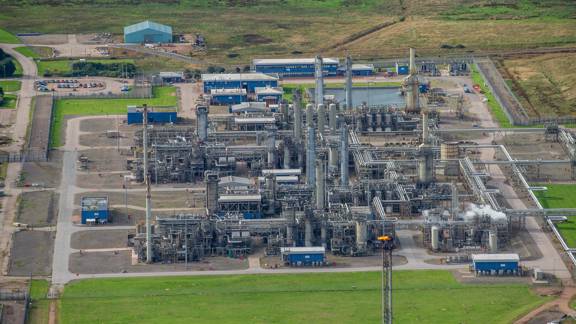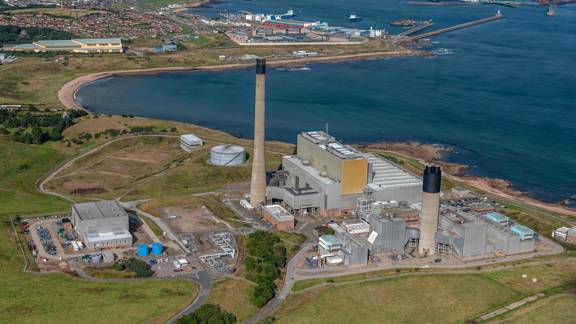
Carbon capture, utilisation and storage
- Business in Scotland
- Sustainable economy
- Cost of doing business in Scotland
- Innovation in Scotland
- Infrastructure and connectivity
- Expand and scale your business
-
Success stories
- UserTesting
- Smart Green Shipping
- Ace Aquatec
- Rotech Subsea
- Invenergy
- Burns and McDonnell
- Green Freeports
- HSBC
- Orbex
- Previse
- Logos Logistics
- Eurostampa
- Balmoral Comtec
- Tachmed
- Spire
- Dean's of Huntly
- Outplay
- Masdar
- GSK
- Sumitomo Electric Industries
- AMD
- J.P. Morgan
- Renovite Technologies
- Ashurst
- Ascensos
- Fraunhofer UK Research
- Barclays
- Channel Bakers
- Planet DDS
- Celestia
- Sunhope Packaging Machinery
- Fennex
- XLCC
- Apadmi
- Financial and tax incentives
- People, skills and recruitment
-
Locations for your business
-
Commercial properties and land
- Inverness Campus
- Energy Transition Zone (ETZ)
- Prestwick: Scotland’s only Aerospace Enterprise Area
- Michelin Scotland Innovation Parc (MSIP)
- Grangemouth Chemical Science Park
- Arrol Gibb Innovation Campus (AGIC)
- Advanced Manufacturing Innovation District Scotland (AMIDS)
- Chapelcross
- Glasgow City Innovation District
-
- Business in Scotland
- Sustainable economy
- Cost of doing business in Scotland
- Innovation in Scotland
- Infrastructure and connectivity
- Find your industry
- Work in Scotland
- Setting up your business
- Expand and scale your business
-
Success stories
- UserTesting
- Smart Green Shipping
- Ace Aquatec
- Rotech Subsea
- Invenergy
- Burns and McDonnell
- Green Freeports
- HSBC
- Orbex
- Previse
- Logos Logistics
- Eurostampa
- Balmoral Comtec
- Tachmed
- Spire
- Dean's of Huntly
- Outplay
- Masdar
- GSK
- Sumitomo Electric Industries
- AMD
- J.P. Morgan
- Renovite Technologies
- Ashurst
- Ascensos
- Fraunhofer UK Research
- Barclays
- Channel Bakers
- Planet DDS
- Celestia
- Sunhope Packaging Machinery
- Fennex
- XLCC
- Apadmi
- Financial and tax incentives
- People, skills and recruitment
-
Locations for your business
-
Commercial properties and land
- Inverness Campus
- Energy Transition Zone (ETZ)
- Prestwick: Scotland’s only Aerospace Enterprise Area
- Michelin Scotland Innovation Parc (MSIP)
- Grangemouth Chemical Science Park
- Arrol Gibb Innovation Campus (AGIC)
- Advanced Manufacturing Innovation District Scotland (AMIDS)
- Chapelcross
- Glasgow City Innovation District
- Green Freeports
-
Commercial properties and land
Carbon capture, utilisation and storage (CCUS) is a big part of Scotland’s journey to net zero. We're developing essential technology to capture, store and use the carbon dioxide (CO2) we produce. If you have the skills and expertise, you could play a part in reaching our target of zero carbon emissions by 2045.
Carbon capture, utilisation and storage in Scotland
-
Job creation
There's a plan for 7000 jobs to be created by the Scottish CCUS cluster.
-
Towards net zero
Scotland aims to capture five to ten million tonnes of CO2 by 2030.
-
Carbon capture
Around 75% of the UK's potential carbon storage is in Scotland’s waters.
Taking action to reduce the amount of CO2 in the atmosphere is at the heart of creating a greener future for Scotland. We’ve already made great progress to shift towards renewables, but decarbonising the energy-intensive industries we rely on is an important part of our net zero strategy.
As well as the environmental benefits, CCUS will allow Scotland’s industry to remain competitive. Scotland needs a skilled and innovative workforce to develop CCUS technologies in the coming decades. This could be where your next career move takes you.
Your skills are in demand
Scotland already has many innovative companies and projects working on CCUS across the country. Capturing CO2 by gas separation and treatment and then transporting it to be used or stored is a complex process.
It requires skills in many different areas including:
- Chemistry
- Geology
- Biotech
- Oil and gas
- Utilities
- The wider supply chain
With the race on to meet our 2045 target, a wide range of companies are investing in CCUS. This makes it one of the most future-focused sectors you could work in, with lots of opportunities to make a difference.
Scotland's CCUS and wider supply chain employers
- Altrad Babcockopens in a new window – engineering and asset management services
- Apolloopens in a new window – sustainable solutions for the energy sector
- Belltree Digital Techopens in a new window – oil and gas software and consultancy
- The Carbon Removersopens in a new window – capture and removal of biogenic carbon
- CCU Internationalopens in a new window – carbon capture technology
- Crondall Energyopens in a new window – CCUS technology
- Exceed Energyopens in a new window – well and reservoir management specialists
- Harbour Energyopens in a new window – oil and gas company
- Howden Compressors (part of Chart Industries)opens in a new window – providers of air and gas handling products and services
- National Gas Transmissionopens in a new window – owner and operator of the national transition system for gas
- North Sea Midstream Partnersopens in a new window – developers of midstream oil and gas assets
- Precision Impulseopens in a new window – seismic data technology
- Sentinel Subseaopens in a new window – specialists in subsea monitoring solutions
- Shell UKopens in a new window – energy multinationalopens in a new window
- Storeggaopens in a new window – independent developer of industrial CO2 storage
- TenzorGeoopens in a new window – integrated end-to-end geophysical solutions
- TUV SUDopens in a new window – certification services
- Veri Energyopens in a new window – infrastructure transformation projects
- Woodopens in a new window – energy industry consulting and project delivery
- Xodusopens in a new window – global energy consultancy
- Zenith Energyopens in a new window – well engineering and project management to the oil and gas industry
Find the latest CCUS roles in Scotland
We’re making things happen in the CCUS sector. So, whatever your passion, and however niche your expertise, you’ll find a home for it in Scotland.
How Scotland supports carbon capture, utilisation and storage
The Scottish Government is committed to developing the sector. Its Green Industrial Strategy highlights CCUS as one of the areas for economic opportunity for Scotland.
The industry body NECCUSopens in a new window brings together an alliance of over 50 members across industry, government and academia. Its aim is to represent and promote Scotland as a leading location for CCUS and help deliver a Scottish net zero industrial cluster by 2045.
Scotland is well placed to lead the way in carbon reduction technology. It offers many advantages to investors in this sector including:
- A highly skilled workforce and existing supply chain capability
- The geology to deliver CCUS beyond domestic requirements
- Existing infrastructure like pipelines, ports and terminals to deliver net zero quickly and cost effectively
- Increasing use of renewable energy

Peterhead Power Station
The CCUS sector at a glance
NECCUS’s Scottish Net Zero Roadmap project (SNZR) sets out how Scotland will achieve net zero emissions from Scottish industry. It estimates that achieving net zero could support an average of 5000 jobs a year from 2023 to 2045 and deliver an economic impact of £21 billion.
The global market for industry CCUS, as well as CO2 transport & storage, could be worth an estimated £181 billion and £54 billion per annum in turnover by 2050. Scotland’s cluster estimates a £17.7 billion contribution to UK economic output to 2050.
Scotland's collective CCUS expertise
Scotland is home to one of four UK CCUS clusters being backed by the UK government aiming to be operational by 2030. The Scottish cluster runs along the east coast of Scotland. It aims to reuse the existing energy infrastructure from the oil and gas industry.
At the heart of the cluster is the Acornopens in a new window project, Scotland advanced CO2 transport and storage network. Acorn, National Gas Transmission’s SCO₂T Connect Project (which repurposes existing pipelines) and a variety of industrial, power, hydrogen, bioenergy and waste-to-energy businesses have come together to work towards decarbonising Scotland’s traditional industries.
Sharing their collective expertise, the project aims to capture their CO2 emissions and then move them permanently into the Acorn geological stores, 2.5 kilometres under the North Sea.
Veri Energyopens in a new window are developing plans for a carbon storage hub in Shetland which would store 10 million tonnes of CO2 per year. It has the potential to create more than 300 million tones of storage capacity.
CCUS research in Scotland
Scotland is also a leader when it comes to CCUS research. Scottish Carbon Capture & Storage (SCCS)opens in a new window is a partnership of the British Geological Survey, Heriot-Watt University, the University of Aberdeen, the University of Edinburgh, the University of Glasgow and the University of Strathclyde.
It is the largest carbon capture and storage (CCS) research group in the UK, coordinating research in partnership across academic and research institutions. It carries out strategic research and communications work, and provides impartial advice to industry, the public sector, government agencies and policy makers.
Quality of life
Scotland has lots to offer outside of work.
Wherever you decide to work in Scotland, you’ll discover welcoming communities, rich history and vibrant culture. Enjoy shorter commutes, world-class education, free healthcare, and plenty of green space on your doorstep.
Building a career in Scotland comes at a lower cost of living than many other major locations. You’ll benefit from flexibility for hybrid and remote working while being fully supported by reliable digital connectivity.
As one of the best-connected places in Europe, Scotland has six airports with daily direct flights to 150 destinations worldwide. We also have fast and frequent rail links to all parts of the UK.
Moving to Scotland
We welcome people from around the world who want to build exceptional careers across Scotland.
Learn more about moving to Scotland on Scotland.org opens in a new window
